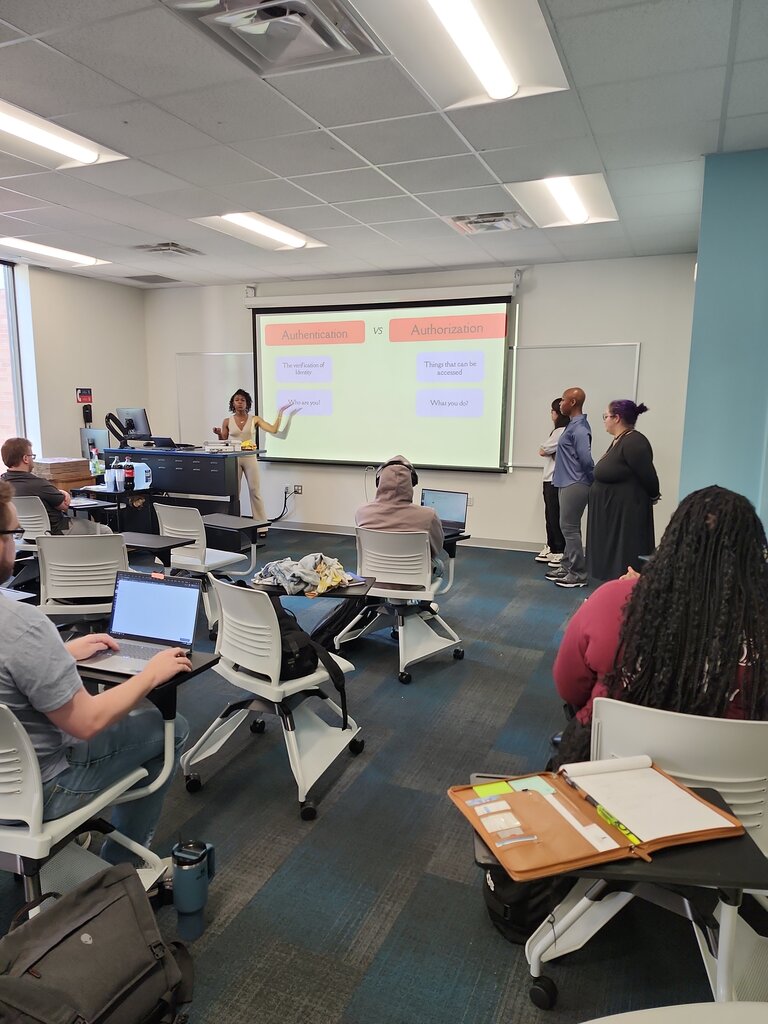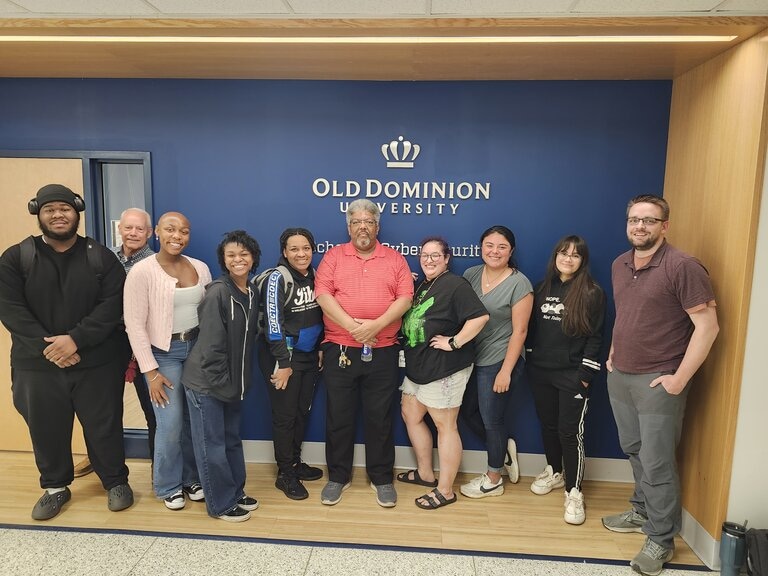Cybersecurity, Technology, and Society
In this course, I explored the interdisciplinary connections between technology and cybersecurity, examining how technological advancements impact cultural, political, legal, ethical, and business domains. Key focus areas included how cyber technology creates opportunities for criminal behavior, the cultural influences on cybersecurity strategies, and how cyber systems introduce security concerns. I studied the effects of technology on crime and victimization, the ethical dilemmas arising from cybersecurity efforts, and the global implications of cybersecurity practices. Additionally, I analyzed the costs and benefits of secure technologies and discussed how cybersecurity shapes definitions of appropriate behavior, progress, and modernism.
Course Material
Spotlight Assignment:
Cybersecurity Presentation
Team Nebula and I presented to our “High School Seniors” class about cybersecurity topics we have learned during our semester in Professor Duvall’s class. My team chose topics: The CIA triad, Malware, Proactivity in Cyber, Cybersecurity Policy, and a philosophical topic answering the question: “Are we adequately thinking through the long-term impact of technologies being developed today
(the short arm of predictive knowledge)?”
This was a fun and engaging presentation that reaffirmed my knowledge of cybersecurity fundamentals. Presenting and answering questions was a great way to sum up a semester’s worth of lectures and engagement.

Special Speakers Free-Write
Throughout CYSE 200T, we had a few spectacular speakers come and share their experiences in the Cyber Field with us. These speakers always left a lasting impression, and we were able to convey these feelings in short essays shown below.
Neal Millar
Neal-Millar_-Guest-PresenterDoris Locking
Doris-Locking-1Darren Spencer
Speaker-Darren-Spencer
Discussions
Discussion posts have allowed me to share my ideas on specific topics with my fellow peers and to read their ideas as well. I explored a topic that engaged my critical thinking skills. A few of my two favorite discussion posts are below.
From this week’s Jonas Reading: How should we approach the development of cyber-policy and infrastructure given the “short arm” of predictive knowledge?
My response:
Approaching the development of cyber policy and infrastructure we need to proceed with caution and a strong ethical foundation. In the article, Jonas points out that old ethics are not the same as new ethics and we must proceed with an ethical foundation to ensure as new technologies are developed individuals privacy and protection is put first.
When developing new technology it is hard to predict how it may affect us in the future. For example, a router that stops all threats today could tomorrow be a backdoor into the system. The same goes with the development of policy and infrastructure not just the technical tools.
To combat this unforeseen future, just like Jonas, I agree that caution and ethics are necessary to create policy and infrastructure for the future.
How should markets, businesses, groups, and individuals be regulated or limited differently in the face of diminishing state power and the intelligification (Verbeek, p217) and networking of the material world?
My response:
Kerina Drummond
4/25/2025
CYSE 200T
Professor Duvall
Intelligification and the Diminishing State Power
BLUF: This article discusses the need for strong regulations as our world comes online. An increase in smart devices has led to the need for updated policies to stay ahead and ensure the safety and security of our physical and digital worlds.
Intelligification
As our world evolves, we’re becoming a more active and intelligent counterpart. Verbeek discusses the intelligification of our world. Common items such as vehicle doors, beds, and even mirrors are becoming smart and impact the way we move through daily life. The new role that technology plays in society has become widespread, and requires that processes need to be reinvented. With access to information at our fingertips, many boundaries of our material world and society must be redrawn, and proper legislation to regulate this new realm of life.
Regulations
The development of technology is beginning to blur the lines between humans and devices. With this blend of humans and technology, markets, businesses, groups, and individuals must create proper regulations and guidelines to follow to ensure security. For example, Verbeek Claims security policy, privacy legislation, and Commercial activities will all need changes in their regulations to incorporate the digital world. We can no longer rely solely on government officials, but create policies and security measures starting at the vendor level. It is hard to predict where we will end up with technology, so we must stay proactive to keep ourselves safe.
Conclusion
In conclusion, as our world comes online, we must keep our society up to date as well. By regulating security policies, privacy legislation, and commercial activities, we can keep ourselves safe and our society working in unison with this new digital world. As Verbeek says, “ a blind and unregulated introduction of this technology and society would throw away the possibility of critical reflection and governance (Verbeek, 2014),” meaning instead of ignoring this growing world of technology, we must embrace it and stay ahead of the curve to protect our world.
References
Verbeek, P.-P. (2014). Designing the public sphere: Information technologies and the politics of Mediation. The Onlife Manifesto, 217–227. https://doi.org/10.1007/978-3-319-04093-6_21
Take Away
This course has many benefits and a great professor. Learning was made easy with interactive lessons and an enthusiastic teacher. Days were never boring, and I learned a lot about human behavior in cybersecurity and the way it influences a victim’s and an offender’s behavior. We researched breaches to better understand the way the history of cyber attacks has influenced our understanding of cybersecurity now. This class allowed me to explore other careers in the cybersecurity field. I started wanting to be an ethical hacker, but now I am exploring a career as a digital forensic examiner.